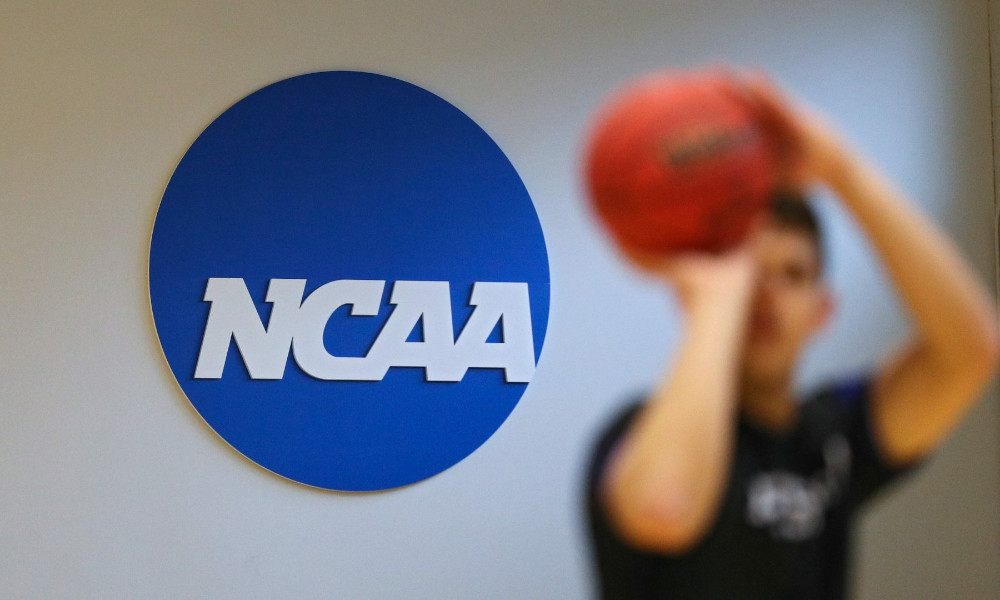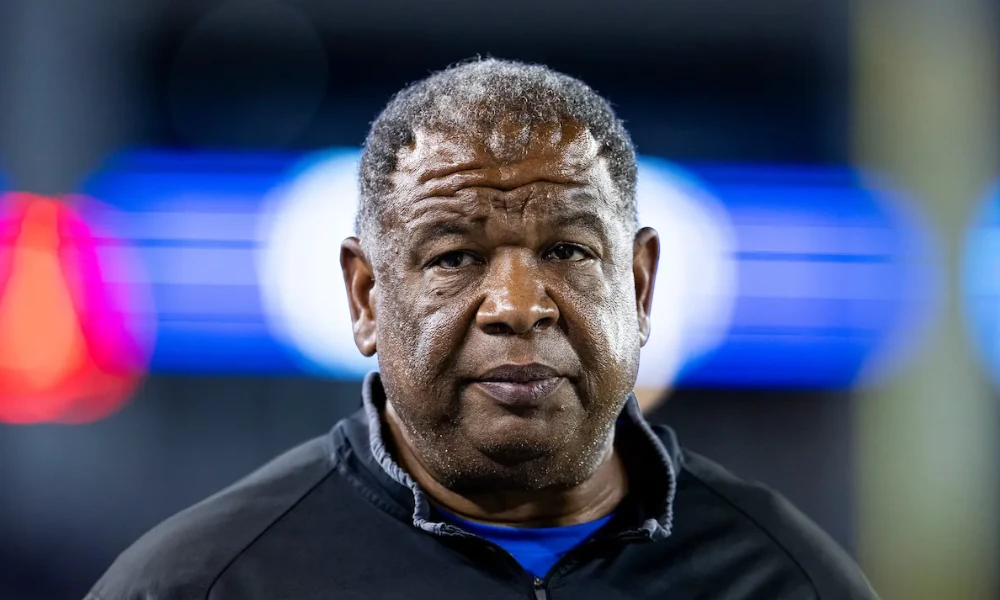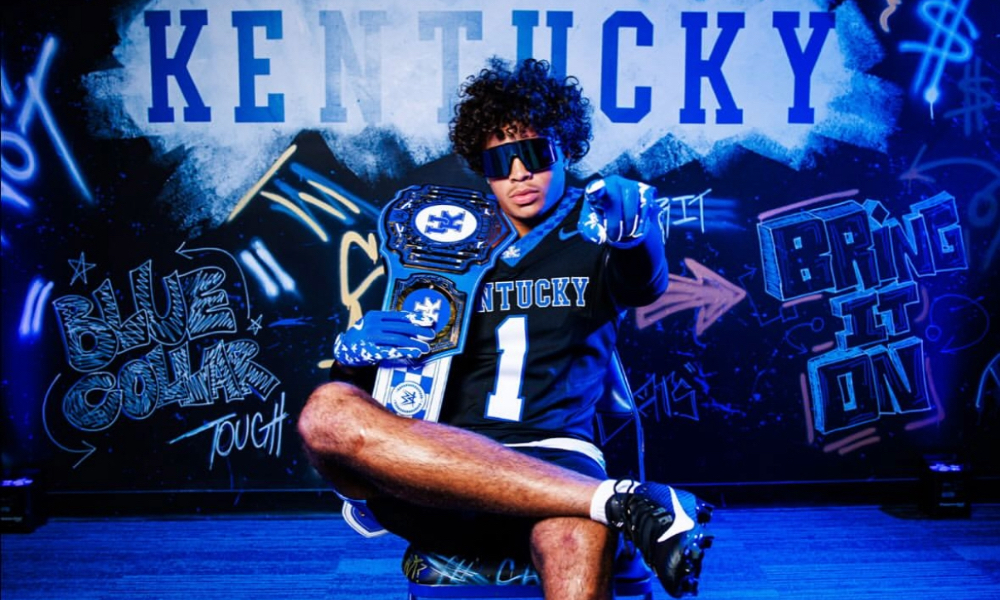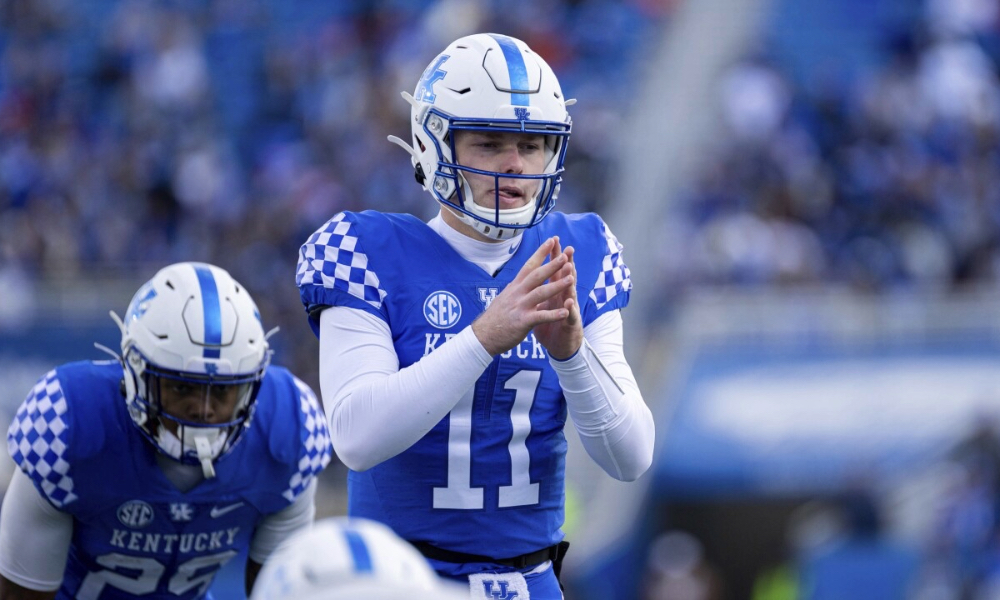Beau Allen’s journey back to Kentucky is a story that deserves to be told again, one that sent the Lexington native over 900 miles away from home when he played for Tarleton State during his sophomore season. He then found himself at Georgia Southern for his junior season, eventually having to sit out due to NCAA regulations.
Allen spoke of his time away from home, claiming he grew so much on and off the field before his eventual return to Kentucky last season. Now, with one season left in his college football career, Allen sat down with Kentucky Insider to talk about his confidence in still starting at quarterback for the Wildcats and how he keeps his fire for the sport alive.
Q: How have you been doing? How’s the offseason treating you so far?
It’s been good! We were off in May, this past week has been the first week we’ve got back into it and it’s been good. We’ve been working out, running, throwing, working out in the weight room, but it’s all been good so far.
Q: You’ve had such a crazy journey throughout college. Deciding to return to Kentucky, what influenced that decision rather than from being from Lexington?
I thought (about) things right around when I was in my fourth year of college at Georgia Southern University at the time, I loved and I had a good time at all my stops that I’ve been around, but I kind of thought I wanted to end my career here (Kentucky) in college, and it just meant more.
All in all, I thought if I had the opportunity to end my career here at Kentucky, I would and I’d take that up and that’s kind of what it came down to.
Q: How hard was it to combat with maybe going somewhere else and being a guaranteed starter for a full season? Was that decision difficult at all?
It definitely was. It’s obviously harder to play here than it would be at some other schools that I’ve been at before, but, kind of going back to what I said earlier, I thought if I was the best I could be here (Kentucky) and do as much as I could for the team, that’d be something I’d be happy about looking back on my career.
I don’t know if it would’ve been something I ever would’ve done if I didn’t get to start at Tarleton (State) but from like a wide view or if I’m looking back on my career a few years from now, I imagine I’ll probably be happy that I can play a little more and also finish my career at home too.
Q: With the offseason depth charts, does that ever bother you during the offseason, knowing where you rank among the field according to everyone? Is it distracting or anything?
No, not really. I mean, maybe when you’re younger you think about that stuff, but it doesn’t really change anything. You just go into practice every day, or whatever it is, if it’s a workout or even a meeting, just trying to be the best that you can be. Everything else will fall in line after that.
Q: How easy is it to keep the fire going? Do you still envision a world for yourself where you could start at Kentucky?
Oh yeah, I definitely feel the fire. I mean, obviously, compared to last year and like this year, I won’t be the guy that rolls out there week one or anything, you know what I’m saying? Every day still, I still get after it. It’s something I love to do and if my numbers called, I’ll definitely be ready.
Mentally, physically, I’m still attacking it, and that is the way I still go about it and every time again, who knows what happens but I’ll always give it the most I can.
Q: I want you to take me way back to 2020 when you made your debut against Vanderbilt. How did that moment feel? I know a lot of athletes say they don’t remember their debut and that it’s all a blur, is that the same case for you?
Maybe a little bit. I definitely remember the first play I was in. Eddie Gran was our offensive coordinator back then. I can still remember the first completion I had in college, but it was definitely awesome. It definitely was good to take back and get those moments.
It was kind of similar to Cutter (Boley), Cutter played more serious time than I did when I was a freshman, but, it’s definitely something you’ll never forget, good or bad.
Q: Coming out of high school, I was curious if your decision to commit to Kentucky and then recommit after Georgia Southern, did it have the same feeling for you? Did you want to go home and play from where you’re from?
I’d say so. I think coming out of high school, I’d say going to be a quarterback at Kentucky was always a dream of mine. At the time, my senior year was like when Lynn Bowden’s (Jr.) year and I knew all the injuries we (Kentucky) had at quarterback. I guess it is a little hard to project it, I guess play style wise, but I love all the people.
We still have so many of the same people around here. Obviously, I know offensive coordinators change a lot, but there’s still a lot of those guys around here. That’s a good thing for me I mean I have a great relationships with all the coaches, that was a big thing in high school. It’s still a big thing coming back, when I was in Tarleton (State) in Texas or Georgia Southern, I kept up with or had a text or texted with at least one of the coaches at all times.
Q: You mentioned Tarleton (State) a lot. How did that year help you and transform you as a player?
Yeah it was obviously huge. I wouldn’t trade it for anything. I had a great time at Georgia Southern, but there was a few eligibility issues with transferring at the time. I mean, shoot, if I had to do it all over again, I would’ve stayed there another year, maybe come back after that. I had a wonderful time and we had some great players, some great coaches. I wish we won more games.
My two highest leading receivers on that roster both made mini camps and are pushing and grinding to make it longer in the summer and try to hopefully get a roster spot.
Q: That 2023 season, leaving Tarleton State and then going to Georgia Southern, when the eligibility thing hit, how did you feel then? Did you feel like you made the wrong decision?
I think that was kind of something that like everything happens for a reason. I thank God, always a part of everything that happens in your life. How it mainly happened, like at the time, the big thing was like you can’t transfer twice as an undergraduate, but you could get a waiver at the time. The year prior, everyone was getting these waivers and we all thought it would work out and obviously it didn’t.
Football wise, I got to do the scout team, which I didn’t do my freshman year. There’s a part of me that kind of, looking back, wished that I did that at UK. There was a two week span where I was pretty down in the dumps about it, but it ended up being a great thing for me, just developing with myself as a quarterback on and off the field.
Q: I wanted to ask about your dad’s (Bill Allen, Kentucky quarterback from 1984-88) impact. Can you talk about how his experience at Kentucky kind of shaped you into what you are today?
He played kind of similar, probably similar to my career, besides the transferring stuff, in terms of like, playing a little bit here and there, but he was very instrumental. He’s never, and I kind of thank him for it, there’s some of the crazier dads that make their kids throw 1,000 balls a week or something and he never was that way. His perspective kind of allowed me to not, especially at a younger age, not really burn out much or anything, or get tired of football. It’s a big part of why I’m still doing it now. We would throw all the time, but I would be the one to instigate it. I think how he kind of handled being a former player, and his kid playing the exact same position, he had a lot of opportunities to maybe push that kind of nature. How he did it led me to love football a little more naturally than most people are probably able to.
Related

 Men's Basketball1 week ago
Men's Basketball1 week ago
 Men's Basketball2 weeks ago
Men's Basketball2 weeks ago
 Men's Basketball3 days ago
Men's Basketball3 days ago
 Men's Basketball1 week ago
Men's Basketball1 week ago
 BB Recruiting1 week ago
BB Recruiting1 week ago
 Men's Basketball1 week ago
Men's Basketball1 week ago
 Men's Basketball2 days ago
Men's Basketball2 days ago
 Men's Basketball2 weeks ago
Men's Basketball2 weeks ago

















